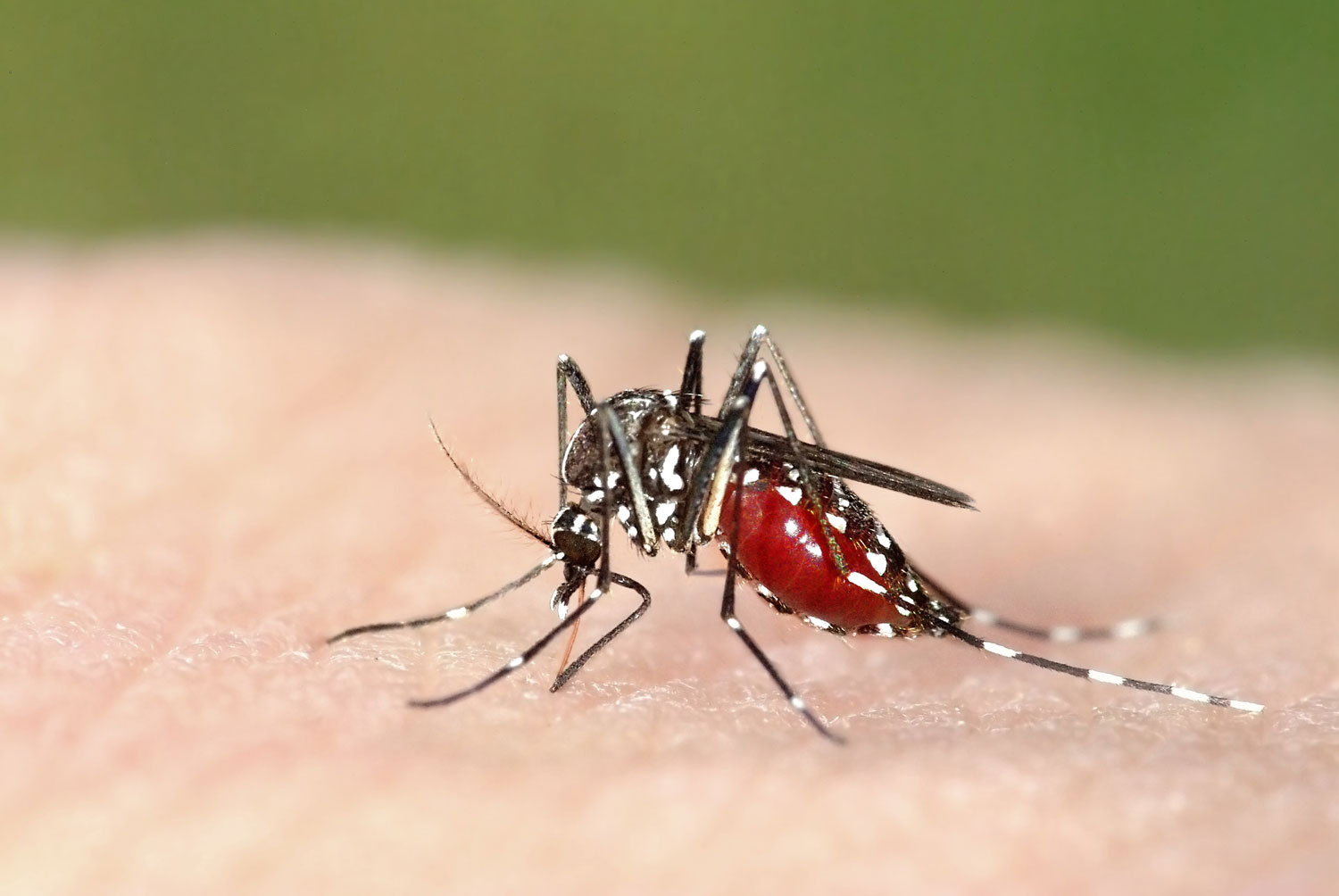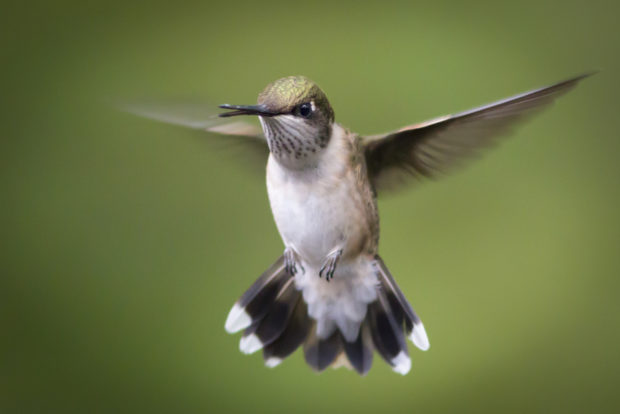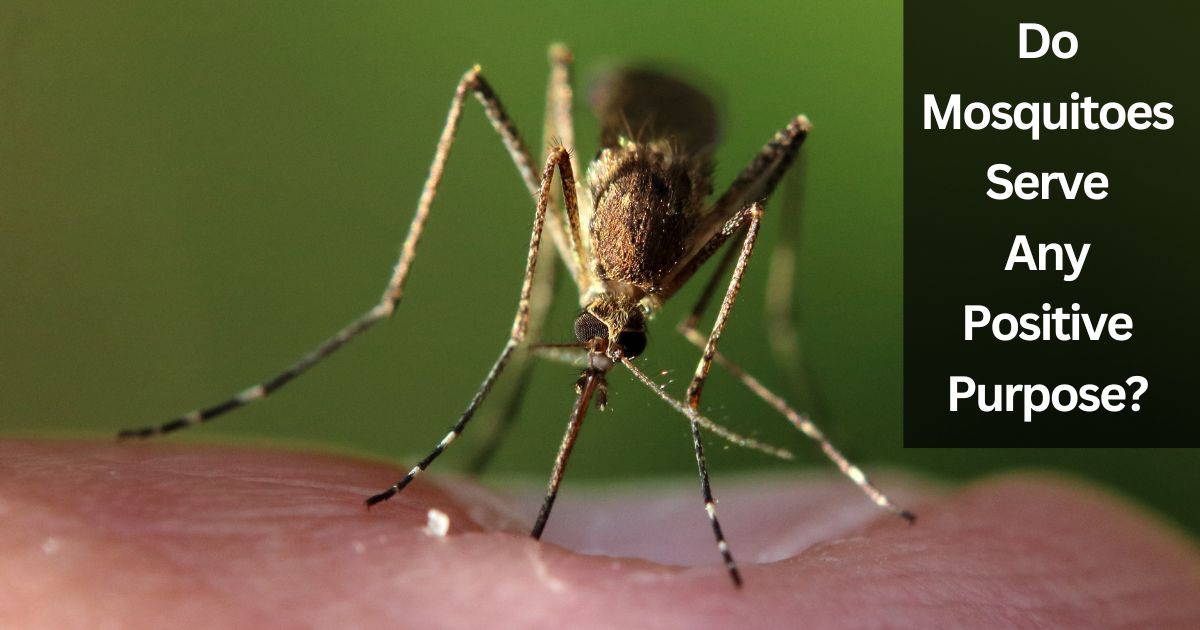Mosquitoes serve a vital purpose in the ecosystem by serving as a food source for other wildlife and acting as pollinators. They form an important source of biomass in the food chain, providing food for fish as larvae and for birds, bats, and frogs as adult flies.
Additionally, some species of mosquitoes are crucial pollinators, contributing to the reproduction of various plant species. Despite their nuisance to humans, mosquitoes play a significant role in maintaining ecological balance and supporting the survival of other organisms in the natural world.
Without them, the ecosystem could face disruptions, impacting the food chain and plant reproduction processes. Therefore, while they are often perceived as pests, mosquitoes do serve a positive purpose in the broader ecological system.
Mosquitoes Beyond The Bite
Mosquitoes are often seen as nothing more than pesky insects that leave itchy bites. However, there is more to these buzzing creatures than meets the eye. Let’s delve into the world of mosquitoes beyond the bite.
The Role Of Mosquitoes In Food Chains
One crucial role that mosquitoes play is their contribution to food chains. Mosquito larvae serve as a vital source of aquatic nutrition for various organisms in freshwater ecosystems.
Mosquito Larvae As Aquatic Nutrition
As mosquito larvae thrive in water bodies, they become a significant food source for fish, frogs, dragonfly nymphs, and birds that prey on water insects. This ensures a balanced ecosystem with a diverse range of species relying on mosquitoes for sustenance.

Credit: www.reconnectwithnature.org
Pollination And Mosquitoes
Mosquitoes do serve a positive purpose in the ecosystem, as they contribute to pollination and serve as a food source for various animals such as fish, birds, and frogs. Despite being perceived as pests, mosquitoes play a role in maintaining the balance of the ecosystem through their interactions with other organisms.
Nectar-feeding Habits Of Male Mosquitoes
Male mosquitoes, contrary to popular belief, do not feed on blood. Instead, they rely on nectar from flowers as their primary source of nutrition. These male mosquitoes have specialized mouthparts that allow them to extract nectar from various flowering plants. By feeding on nectar, they contribute to the pollination process, inadvertently transferring pollen from one plant to another as they move between flowers in search of food.
Plants That Rely On Mosquitoes For Pollination
Believe it or not, there are certain plant species that have evolved to rely on mosquitoes for their pollination process. These plants have unique adaptations that attract mosquitoes, such as producing flowers with specific colors, shapes, and fragrances that are irresistible to these insects. For example, some orchid species have flowers that resemble female mosquitoes, tricking male mosquitoes into attempting to mate with them. As the male mosquitoes visit these deceptive flowers, they unknowingly transfer pollen, aiding in the plant’s reproductive cycle. In addition to orchids, there are other plants, such as the cacao tree and some types of bromeliads, that also depend on mosquitoes for pollination. The relationship between these plants and mosquitoes highlights the intricate web of interdependencies in nature, where even seemingly pesky creatures like mosquitoes serve a vital purpose in maintaining biodiversity and ecosystem balance. In conclusion, while mosquitoes may be known for their irritating bites and disease transmission, it is important to recognize that they also play a role in pollination. Male mosquitoes, in particular, contribute to the pollination process by feeding on nectar and inadvertently transferring pollen between flowers. Additionally, certain plant species have evolved to rely on mosquitoes for their reproductive success. Understanding the positive aspects of mosquitoes’ existence can help us appreciate the complexity of nature and the delicate balance of ecosystems.
Biological Control Agents
Mosquitoes, though often seen as pests, serve a positive purpose in the ecosystem as biological control agents. They help control insect populations, pollinate flowers, and provide a food source for various animals like birds and fish.
Mosquitoes In Insect Population Management
Mosquitoes are not just pests; they also serve as biological control agents in managing insect populations. They act as a food source for larger animals such as birds, frogs, and fish, helping to maintain a balance in the ecosystem. Mosquito larvae, in particular, are an important food source for fish and dragonfly nymphs. By controlling the population of other insects, mosquitoes contribute to the overall health and stability of ecosystems.
Balance Of Ecosystems And Mosquito Activity
Despite their nuisance, mosquitoes play a vital role in maintaining the balance of ecosystems. As larvae, they serve as a food source for various aquatic organisms, including fish and dragonfly nymphs. Adult mosquitoes also contribute to pollination, playing a crucial role in the reproduction of certain plant species. This interdependence between mosquitoes and other organisms highlights the importance of preserving their presence in ecosystems. Furthermore, the activity of mosquitoes can indicate the health of an ecosystem. Excessive mosquito populations may indicate an imbalance in the ecosystem, such as stagnant water or an overabundance of other insects. By monitoring mosquito activity, scientists can gain valuable insights into the overall health and functioning of an ecosystem. In conclusion, while mosquitoes may be a nuisance to humans, they serve a positive purpose in the natural world. As biological control agents, they help manage insect populations, ensuring the balance of ecosystems. Their presence also contributes to pollination and acts as an indicator of ecosystem health. Understanding the important role mosquitoes play can help us appreciate their significance in maintaining the delicate balance of nature.

Credit: www.britannica.com
Disease And Ecological Impact
Mosquitoes may seem like a nuisance, but they serve a vital purpose in the ecosystem. Mosquitoes act as a food source for larger animals, such as birds, and also help control insect populations. Additionally, some species of mosquitoes are important pollinators.
However, it’s important to note that mosquitoes also transmit diseases, making them a significant health concern for humans and animals alike.
Disease and Ecological Impact Mosquitoes are notorious for spreading deadly diseases to humans and animals. They are responsible for transmitting diseases such as malaria, dengue fever, yellow fever, and Zika virus. Mosquito-borne diseases in humans and animals can cause severe illness, long-term disability, and even death. Mosquitoes also have an ecological impact.
They serve as a vital food source for many animals, including fish, birds, and bats. Mosquito larvae are food for fish, frogs, and dragonfly nymphs. Mosquitoes also pollinate flowers, and some species are important pollinators. The paradox of eradication While mosquitoes are responsible for spreading deadly diseases, they also serve a positive purpose in the ecosystem. Mosquitoes are considered biological control agents, helping to keep insect populations under control. Mosquitoes also pollinate flowers and serve as a food source for larger animals such as birds.
However, the paradox of eradication is that while we want to eliminate the diseases spread by mosquitoes, eradicating mosquitoes entirely could have unintended consequences. Mosquitoes serve an important role in the food chain, and their absence could have a significant ecological impact. In conclusion, while mosquitoes are responsible for spreading deadly diseases, they also serve a positive purpose in the ecosystem. Mosquito-borne diseases in humans and animals can cause severe illness, long-term disability, and even death.
Mosquitoes are also a vital food source for many animals and serve as important pollinators. While we want to eliminate the diseases spread by mosquitoes, we must also consider their ecological impact and the potential consequences of eradicating them entirely.
Mosquitoes And Biodiversity
Mosquitoes play a crucial role in supporting diverse wildlife.
Supporting Diverse Wildlife
Mosquitoes serve as a vital food source for various animals such as fish, frogs, birds, and bats.
Consequences Of A Mosquito-free World
If mosquitoes were to disappear, it would disrupt the food chain, leading to negative impacts on various species.
Cultural And Scientific Insights
Mosquitoes, despite being a nuisance to humans, actually serve a positive purpose in the ecosystem. They act as pollinators and are a crucial food source for other wildlife such as fish, birds, bats, and frogs. While their presence may be bothersome, it is important to recognize their role in maintaining the balance of the natural world.
Mosquitoes In Human History
Mosquitoes have been an integral part of human history, influencing cultures and societies across the globe. In some ancient civilizations, these buzzing insects were even revered as symbols of power and resilience. However, the negative impact of mosquito-borne diseases cannot be overlooked, shaping the course of history and driving scientific innovation in disease prevention and control.
Research Opportunities Provided By Mosquitoes
Mosquitoes, while primarily known as disease vectors, offer unique research opportunities. They are essential in the study of vector-borne diseases, genetics, and evolutionary biology. Additionally, their ecological role as pollinators and a food source for various organisms presents intriguing avenues for scientific exploration and conservation efforts.
Natural Repellents And Coexistence
Mosquitoes, despite their nuisance, serve a purpose in the ecosystem. Understanding how to coexist with them and utilizing natural repellents can help maintain a balance.
Plants That Deter Mosquitoes
Several plants are effective in deterring mosquitoes naturally:
- Citronella
- Lavender
- Peppermint
- Lemongrass
Adapting To Live With Mosquitoes
Living with mosquitoes involves creating a harmonious environment. Some strategies include:
- Using insect-repelling plants
- Installing screens on windows
- Eliminating standing water sources
- Using natural repellents like citronella candles

Credit: blog.nwf.org
Rethinking The Mosquito Narrative
Mosquitoes have long been vilified as pesky blood-suckers, but are we overlooking their potential positive contributions to the ecosystem?
Challenging Common Misconceptions
Contrary to popular belief, mosquitoes serve as biological control agents, helping maintain insect populations. They also play a role in pollinating flowers and providing a food source for birds and other animals.
The Potential For Positive Mosquito-human Interactions
- Mosquito larvae serve as food for fish, frogs, and birds that feed on water insects.
- Some species of mosquitoes are important pollinators, contributing to biodiversity.
Frequently Asked Questions
What Would Happen If Mosquitoes Went Extinct?
If mosquitoes went extinct, it would disrupt the food chain. Many animals, such as frogs, dragonflies, and birds, rely on mosquitoes as a food source. Additionally, mosquitoes serve as pollinators and help control insect populations. However, it’s important to note that mosquitoes also spread diseases, so their extinction could potentially reduce the risk of these diseases.
Do Mosquitoes Have A Positive Impact?
Mosquitoes have a positive impact as biological control agents, pollinators, and food sources for animals like birds.
Could We Live Without Mosquitoes?
While mosquitoes serve as pollinators and a food source for other wildlife, they also transmit deadly diseases like malaria, dengue fever, and yellow fever. If mosquitoes went extinct, many animals would have less food, but the world would be a better and safer place without the threat of mosquito-borne diseases.
Conclusion
Mosquitoes do serve a positive purpose in the ecosystem, acting as a food source for various animals and aiding in pollination. While they can be a nuisance to humans, their presence contributes to the balance of the natural world. Understanding their role is important for maintaining a harmonious environment.
Related posts:

I’m MD Tanvir, and I bring years of expertise gained from working closely with pest control companies to the forefront. My journey in the industry has inspired me to launch Bug Battler, a platform aimed at equipping people with the know-how to combat pests autonomously. Through Bug Battler, I aim to empower individuals with practical insights to tackle pest infestations effectively.

